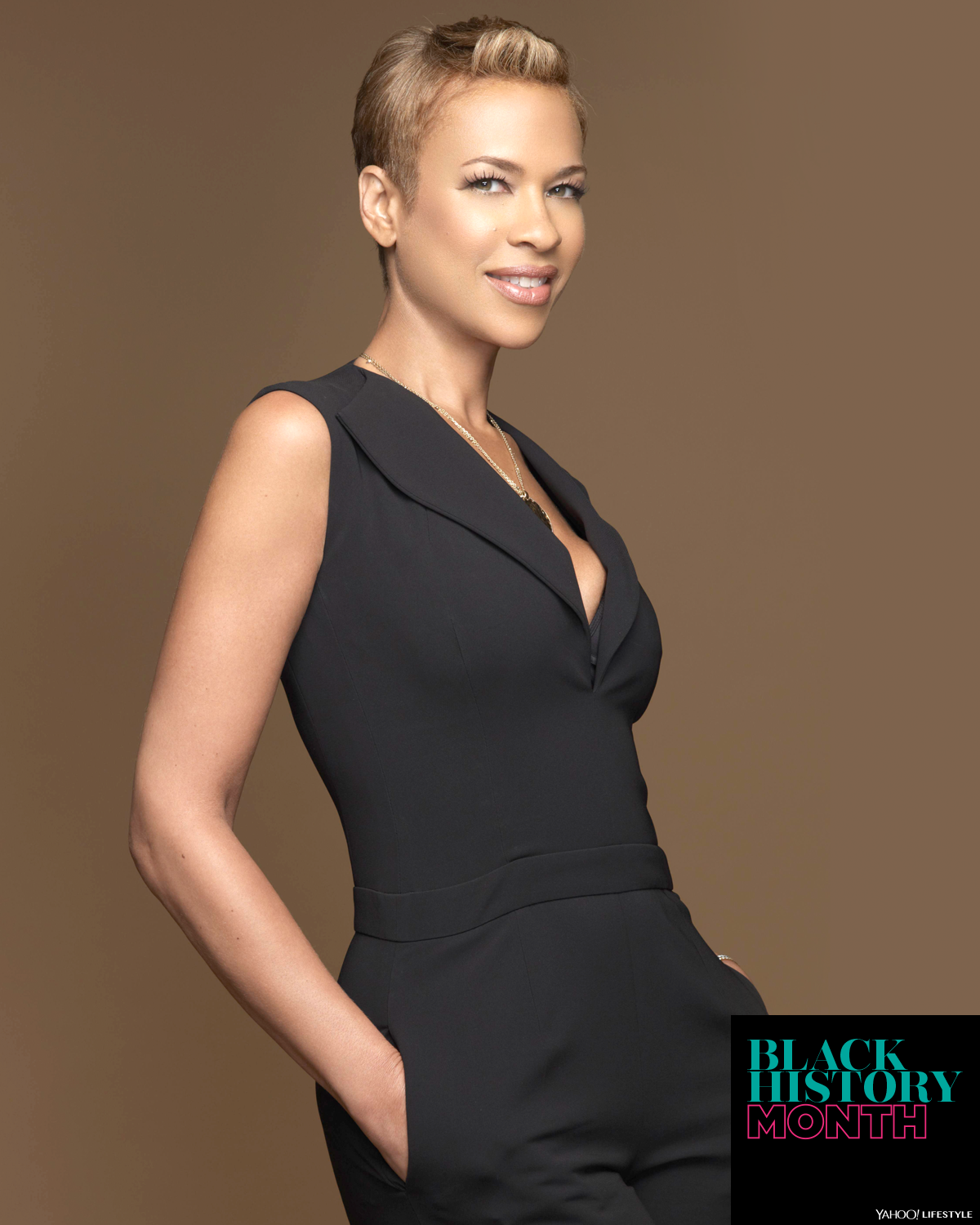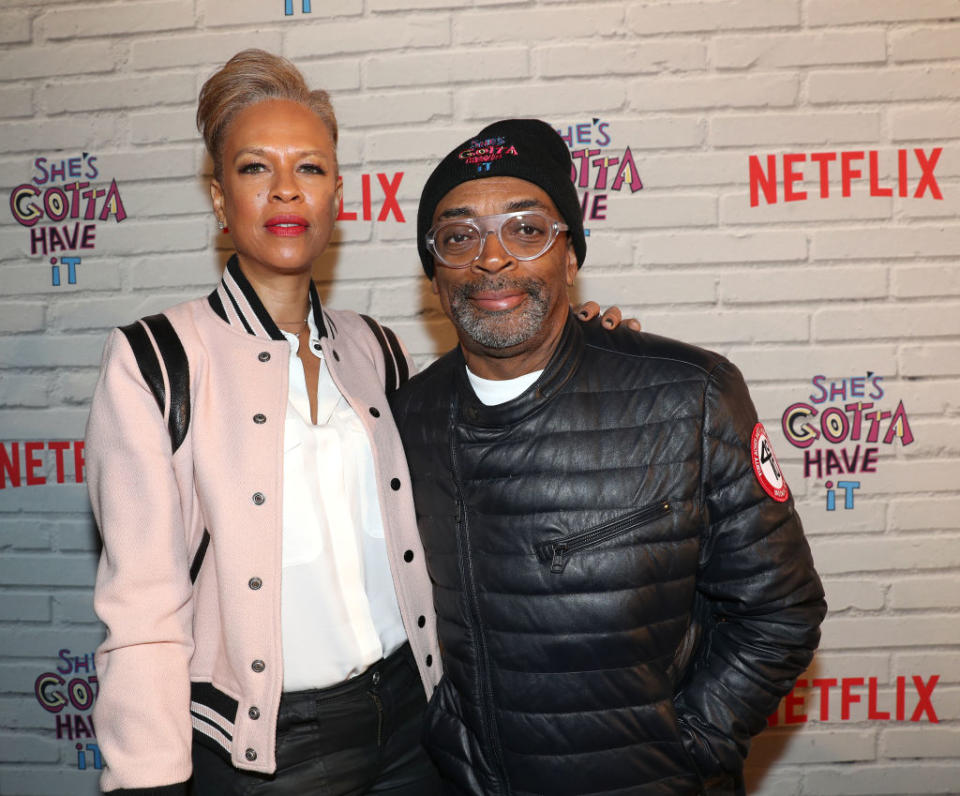How Tonya Lee is revolutionizing the way society speaks about black women's wellness

What does it mean to be black today? For Black History Month, Yahoo Lifestyle will explore this question in wide-ranging personal essays, video features, and Q&As that focus on the nuances of black culture. In this feature, Tonya Lee gets candid about wellness and womanhood.
“We often speak in the language of lack,” Tonya Lee says. Lee — a producer, writer, filmmaker, entrepreneur, and women’s health advocate — is referring to the way society speaks about black women‘s wellness. “It almost becomes a self-fulfilling prophecy: ‘Oh, well black women have the highest rates of this, and black women are the most sedentary that.’ It’s like well, if that’s the case then we might as well give up. But I’m seeing more and more images of women of color who are engaged in healthy lifestyle, and it’s really important that we see those images and talk about who we are and how we live a healthy lifestyle. That’s the way you get people to really discover the how-to’s.”
Before Lee found her own path to wellness, she worked as an executive producer for shows like She’s Gotta Have It, and became a spokeswoman for infant mortality awareness. Before she became the mother of two children, or the wife of director Spike Lee, and before she obtained a law degree and started her own line of vitamins and launched a website geared toward wellness, Lee was a just a little girl growing up in a family that moved around a lot. “I always sort of felt like an outsider,” she tells Yahoo Lifestyle. “I was sort of a chubby child. I wasn’t very active. I had allergies — I was definitely allergic to milk, but I didn’t really understand what that meant. I was often sick. I would get bronchitis at least a couple of times a year. I had asthma.”

Like many young kids growing up in the ’60s and ’70s, Lee was taken to the doctor to discuss her weight, but it was more about appearance than wellness. “When I was about 13, my mother started taking me to the doctor because I was a little ‘chubby.’ I would go in for weigh-ins once a week. By the time I was 16, I was starting to diet and exercise, but that was not wellness, mind you,” she says. “It was about vanity and this concept of being superskinny and having no idea what I was doing.
“Flash-forward to 2007 when I started as a spokesperson for a campaign around infant mortality in the U.S., and that campaign really opened my eyes to living a healthy, well life.”
The campaign she’s referring to is a trip she took across the country with the Department of Health and Human Services to educate women of all different socioeconomic backgrounds about infant mortality. African-American babies have by far the highest infant mortality rate; they have 2.2 times the infant mortality rate as white babies. Relatedly, black mothers are also far more likely to smoke while pregnant, and to receive no prenatal care. “What I was finding was when you’re talking about an infant’s health, you’re really talking about a woman’s health,” Lee says.
Lee thinks the key to having healthier babies, healthier communities, and healthier black women is education, as well as policy. She’s also not unrealistic about the hardships facing women on a daily basis. “In some communities, people are really struggling,” she says. “Thinking about exercise when you’re trying to figure out how to get a job, and keep a roof over your head, or feed a baby, it’s tough! But at the same time what I say to women is, ‘Your family needs you, so you have to figure out, if not for yourself then for them.’ Unfortunately, it’s much easier to eat fast food, it’s much cheaper too, and so people often go for what’s easy and what’s cheaper in the moment and have a hard time figuring out how that’s going to really impact them over the long term.
“I do think we were making an impact,” she says of their goal to educate, but she also realized that to make her voice trusted, she had to walk the walk and not just talk the talk. “Statistically I should be on all kinds of medication. If you look at my family history, I should have high blood pressure and be taking cholesterol medication by now, and maybe getting into pre-diabetes, and I’m not,” she says. “And I think a lot of that has to do with the lifestyle choices that I make.”
Sharing insight about her own routine, Lee says, “When I’m at home, the one thing I love is my morning smoothie, which is a mix of blueberries, spinach, unsweetened cocoa powder, and coconut water — that to me every morning is like a reset. Also working out at least four times, preferably five, but at least four times a week — and I fight for that time, either I’ve gotta get up early to get it in, or have do it in the evenings, but I fight for that time. My son who is now 20, we were talking the other day about how I used to work out. He remembers I had a treadmill in the basement, and I could watch from the basement window into the family room and see [the kids] when they were little, so I could get it in when they were watching TV.” Lee also noted that she eats some fish but mostly a plant-based diet.
Lee’s main point is that to raise strong families, to do the powerful, necessary work that black women do — each woman, each person, must first take care of themselves. “Being a black woman today is a very powerful place to be,” Lee adds. “And there’s a lot of work to do, but we’re getting there, collectively.”
As for Lee’s own wellness work? “It’s been a process, the road to living a wellness lifestyle has been a many-year process, and I’m still continuing to figure it out. It can start out well one morning and spiral down, but you get up the next day and fight another day,” she says. “That’s how I see it.”
Read more from Yahoo Lifestyle:
5 black women and men share their unapologetic natural hair stories
How I learned to love my kinky hair and full lips as a black woman
Follow us on Instagram, Facebook, and Twitter for nonstop inspiration delivered fresh to your feed, every day.


